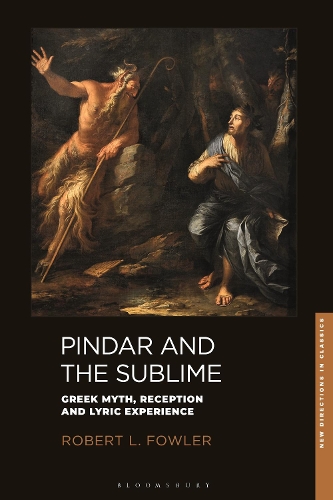
Pindar and the Sublime: Greek Myth, Reception, and Lyric Experience
(Paperback)
Available Formats
Publishing Details
Pindar and the Sublime: Greek Myth, Reception, and Lyric Experience
By (Author) Professor Robert L. Fowler
Bloomsbury Publishing PLC
Bloomsbury Academic
10th March 2022
United Kingdom
Classifications
Tertiary Education
Non Fiction
Literary studies: poetry and poets
884.01
Physical Properties
Paperback
280
Width 156mm, Height 234mm, Spine 16mm
440g
Description
Pindarthe Theban eagle, as Thomas Gray famously called himhas often been taken as the archetype of the sublime poet: soaring into the heavens on wings of language and inspired by visions of eternity. In this much-anticipated new study, Robert Fowler asks in what ways the concept of the sublime can still guide a reading of the greatest of the Greek lyric poets. Working with ancient and modern treatments of the topic, especially the poetry and writings of Friedrich Hlderlin (17701843), arguably Pindars greatest modern reader, he develops the case for an aesthetic appreciation of Pindars odes as literature. Building on recent trends in criticism, he shifts the focus away from the first performance and the orality of Greek culture to reception and the experience of Pindars odes as text. This change of emphasis yields a fresh discussion of many facets of Pindars astonishing art, including the relation of the poems to their occasions, performativity, the poets persona, his imagery, and his myths. Consideration of Pindars views on divinity, transcendence, time, and the limits of language reveals him to be not only a great writer but a great thinker.
Reviews
A superb introduction to Pindar and his poetry. Fowler argues lucidly and passionately that Pindar's odes are examples of sublime literature which transcend their historical context and can still enthuse and inspire audiences today. -- Ian Rutherford, Professor of Classics, University of Reading, UK
Author Bio
Robert L. Fowler is Wills Professor of Greek Emeritus at the University of Bristol, UK. He is the author of The Nature of Early Greek Lyric: Three Preliminary Studies (1987) and Early Greek Mythography (2 volumes, 2000-2013). He has published widely on Greek poetry, mythology, historiography, reception and the history of Classical scholarship. He is a Fellow of the British Academy.
